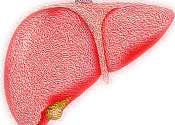Researchers unlock secrets behind liver regrowth and regenerative medicine
NYU Abu Dhabi (NYUAD) researchers have uncovered a code that sets the genome of the liver to account for the remarkable ability for this organ to regenerate. This finding offers new insight into how the specific genes that ...
Jul 6, 2021
0
464








